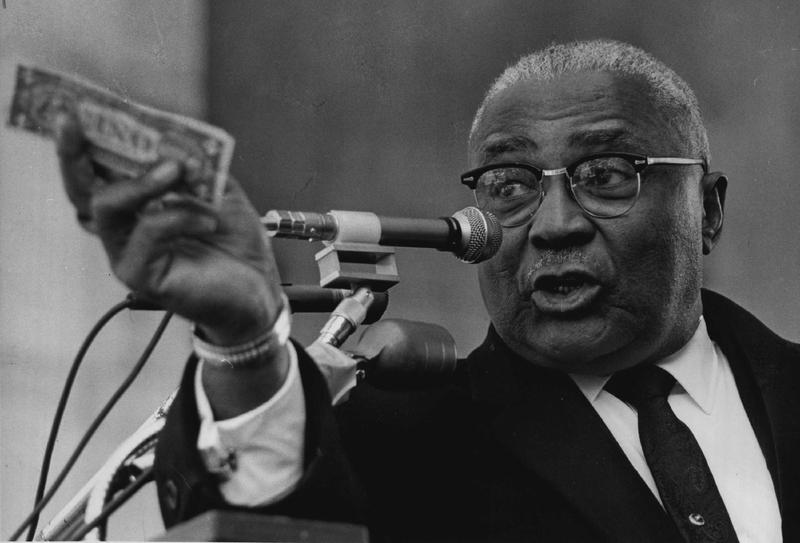 NYPR Archives & Preservation
NYPR Archives & Preservation
The Reverend Martin Luther King Sr. Reflects on His Son, Atlanta and the Movement for Civil Rights

In November, 1961, reporter Eleanor Fischer went to Atlanta, Georgia to interview Dr. Martin Luther King, Jr., his wife Coretta Scott King and his father, The Reverend Martin Luther King, Sr. (1899-1984) for a CBC documentary portrait of Atlanta released the following year. The audio presented here is from Fischer's original raw field recording and has not previously been released in this form.
Reverend King says he and his wife taught their children to aim high in life and that his son Martin, in turn, taught him to temper his approach to life. That, in fact, he said, "he's been a lot of help to me," and "taken some of the fight out of me." This is not to say that Rev. King, Sr. is any less passionate about the cause for civil rights but that the non-violent philosophy and strategy espoused by his son is the "correct path." It is this approach that, he says, has brought about a transition for many people who hated Dr. King, now praising him.
Fischer asks whether some whites praise Dr. King because they see him as moderate. His father, however, believes there is no more militant voice in the South now than Martin Luther King, Jr. But again, militant in a non-violent way. Fischer and King, Sr. discuss the 1961 election and Kennedy's overtly political move to get King out of jail and the role that may have played in the campaign. King, Sr. also describes an Atlanta now markedly different from the Atlanta of the past, the end of lynching and the rise of a "Negro" middle-class in Atlanta that, with exceptions, is not anxious to challenge the status quo for fear of reprisal. But, King, Sr. says, "change is coming and we have to accept it." He believes there are enough liberal whites in Atlanta to move the city past token integration. He knows his son must carry on with the civil rights movement. At the time, however, as a father, he worries about the strain and demands on his son.
_______________________________
The Reverend Martin Luther King Sr became leader of the Ebenezer Baptist Church in Atlanta in March 1931 in the midst of the Great Depression. The church was struggling financially, but King organized membership and fundraising drives that restored the church's coffers. King was the pastor of the Ebenezer Baptist Church for four decades, wielding great influence in the black community and earning respect from many in the white community.
_________________________________________________
Special thanks to Elizabeth Starkey.